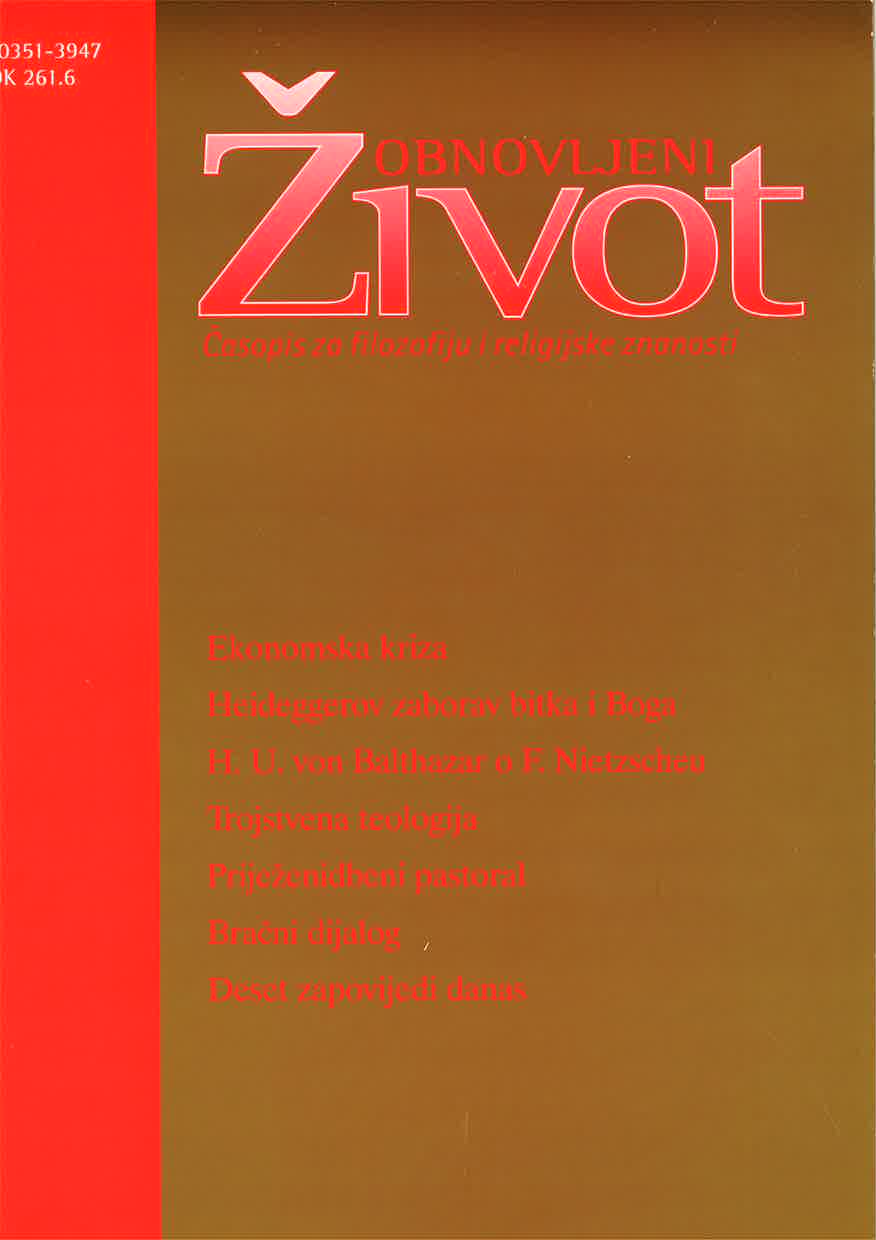The Trinitarian Theology of the Carmelite School
Keywords:
trinitarian theology, Carmel, God, transcendence, union, being, theological virtues, John of the CrossAbstract
I do not hesitate in the least to express the opinion that there exists a certain inadequacy in the bulk of studies on Carmelite spirituality with regard to the need for a more qualitative rational approach to these very difficult topics, but also with regard to the need for establishing their relationship with modern man's sensitivity to theological and cultural issues. Already in the first section of my paper I have gleaned the so-called «constituent» trinitarian elements of this great school of spirituality and have accentuated primarily the «intercommuniality» in which all theological research finds its ultimate meaning. This intercommunion is created through relationships which are in complete harmony with both the ontological reality of the human being and also with God who reveals himself for the sake of communion with man. Namely, to transcend one's being is a basic human need, and it is precisely in the existence of this need that I discern the potential for the fulfillment thereof through the encounter of one's being with the divine being in relationships which transform. In the realization of this basic human need the intermediary activity of theological cognizance and the reality thereof play a vital role, and these occur in the course of one's studies or, generally speaking, through any other kind of theological research. Thus, owing to the fact that our being opens itself to intercommunion and expands its cognitive potential, the scope of our limitations increasingly diminishes, and our being simultaneously opens to new possiblities. Discourse of relationality, which per se belongs in the category of the person, is applied to the monotheistic understanding of God in Carmel. For the moment, the trinitariness of God is abstracted, but merely categorially, only to be tackled again more intensively in the middle section of this study through an analysis of the Sanjuanist approach to the issue. It is interesting to note that «relationality» is the singularity of this great school even when concepts themselves do not denote the same, but rather are such that «relationality» - in the sense of the unifying dimension between God and man, which is characteristic of the trinitarian approach - is not even proper to them as is the case in speech about God. This theme is developed in the third section of the study. Trinitarian relationality is dealt with more systematically in the fourth part of this research paper, with reference to a very detailed analysis of both the concepts and categories of the great Doctor of the Church, John of the Cross. The existential meaning of this relationality is the transformation of man.
Downloads
Published
Issue
Section
License
Jednom prihvaćeni članak obvezuje autora da ga ne smije objaviti drugdje bez dozvole uredništva, a i tada samo uz bilješku da je objavljen prvi put u Obnovljenom životu. Uredništvo će obavijestiti autora o prihvaćanju ili neprihvaćanju članka za objavljivanje.
Članci objavljeni u časopisu se, uz prikladno navođenje izvora, smiju besplatno koristiti u obrazovne i druge nekomercijalne svrhe.


